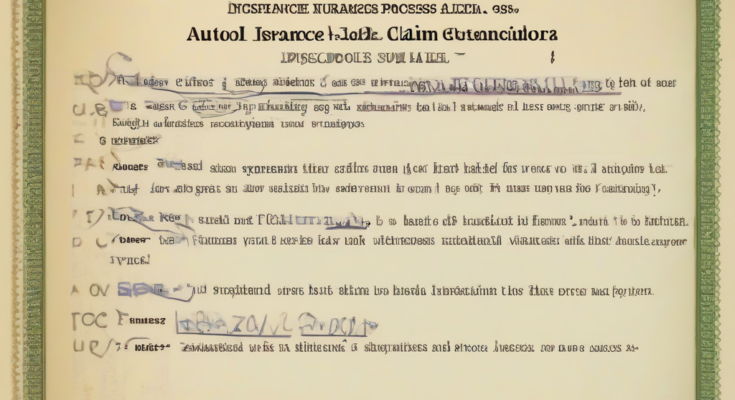Auto Insurance Claim Process: A Step-by-Step Guide
Filing an auto insurance claim can be a stressful experience, but understanding the process can make it easier. Here’s a comprehensive guide to navigating the steps involved, from reporting the accident to receiving your payout.
1. Reporting the Accident
- Contact Your Insurance Company: The first step is to notify your insurance company about the accident. Most insurers have a 24/7 claims hotline that you can call to report the incident.
- Provide Essential Information: Be prepared to provide your insurance policy details, the date, time, and location of the accident, the nature of the accident, and any injuries involved.
- File a Police Report (If Necessary): If the accident involved injuries, property damage exceeding a certain threshold, or a hit-and-run, it’s crucial to file a police report.
2. Gather Information and Documentation
- Take Photos: Document the accident scene thoroughly by taking pictures of the damaged vehicles, any injuries, road conditions, and relevant surroundings.
- Get Contact Information: Exchange contact and insurance information with the other driver(s) involved, including their name, address, phone number, and insurance policy details.
- Seek Medical Attention: If you have any injuries, even if they seem minor, seek immediate medical attention. Obtain copies of medical records and bills.
- Keep a Detailed Record: Maintain a detailed record of all communication with your insurer, including dates, times, and any information shared.
3. Submitting Your Claim
- Complete the Claim Form: Your insurance company will provide you with a claim form to complete. This form typically requires information about the accident, damages, and your contact details.
- Submit Supporting Documents: Attach all relevant documents to your claim form, including photos of the damage, police reports, medical bills, and contact information of witnesses.
- Choose Your Repair Shop: Your insurance company may have a preferred network of repair shops. However, you usually have the option to choose your own shop.
4. Claim Review and Processing
- Claim Assessment: Your insurance company will review your claim, assess the damage, and determine the extent of coverage.
- Inspection: An insurance adjuster may inspect the vehicle to verify the extent of the damage. They may also interview witnesses and review any available evidence.
- Negotiation: If your claim is disputed, you may need to negotiate with the insurance company to reach a fair settlement.
5. Claim Approval and Payment
- Claim Approval: Once your claim is reviewed and approved, your insurance company will send you a payment.
- Payment Options: Payment can be made directly to you or to your chosen repair shop. Your insurance company will outline the payment method and timeframe.
- Claim Denial: If your claim is denied, you have the right to appeal the decision. Your insurer will explain the reasons for the denial and provide information on how to appeal.
Tips for a Smooth Claim Process
- Read Your Policy: Familiarize yourself with the terms and conditions of your auto insurance policy to understand your coverage and responsibilities.
- Be Honest and Thorough: Provide accurate and complete information to your insurance company, and be prepared to answer any questions they may have.
- Document Everything: Maintain a detailed record of all communication, documents, and deadlines related to your claim.
- Be Patient: The claims process can take some time, so be patient and allow your insurance company to handle the claim efficiently.
- Seek Legal Counsel: If you have any questions or concerns about your claim, or if you believe your insurer is not handling it fairly, you can seek legal advice from an attorney specializing in insurance law.
Conclusion
The auto insurance claim process can be complex, but by understanding the steps involved and taking the necessary precautions, you can navigate it smoothly and receive the compensation you deserve. Remember to communicate clearly with your insurance company, gather the required documentation, and stay informed about the progress of your claim.



